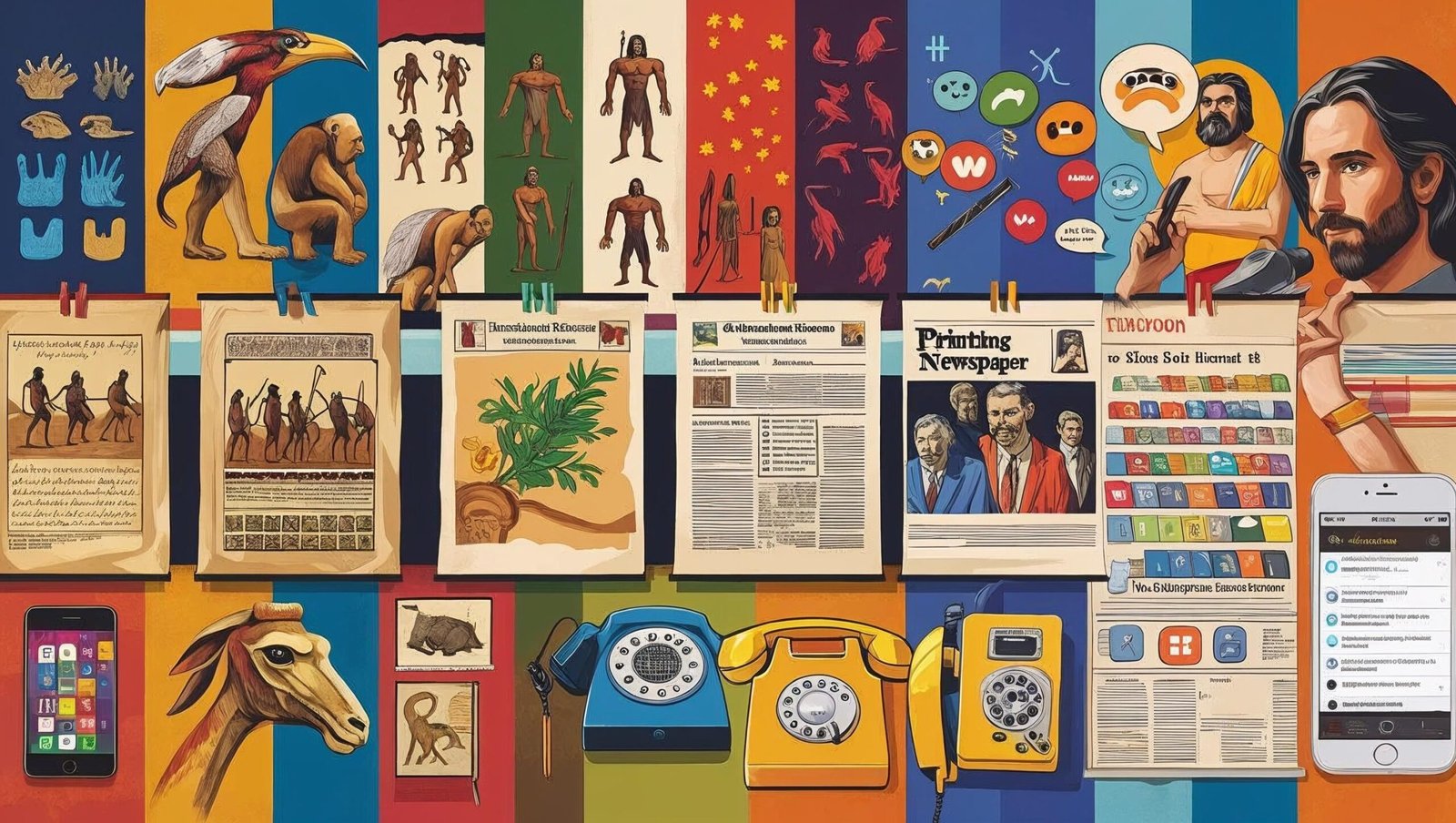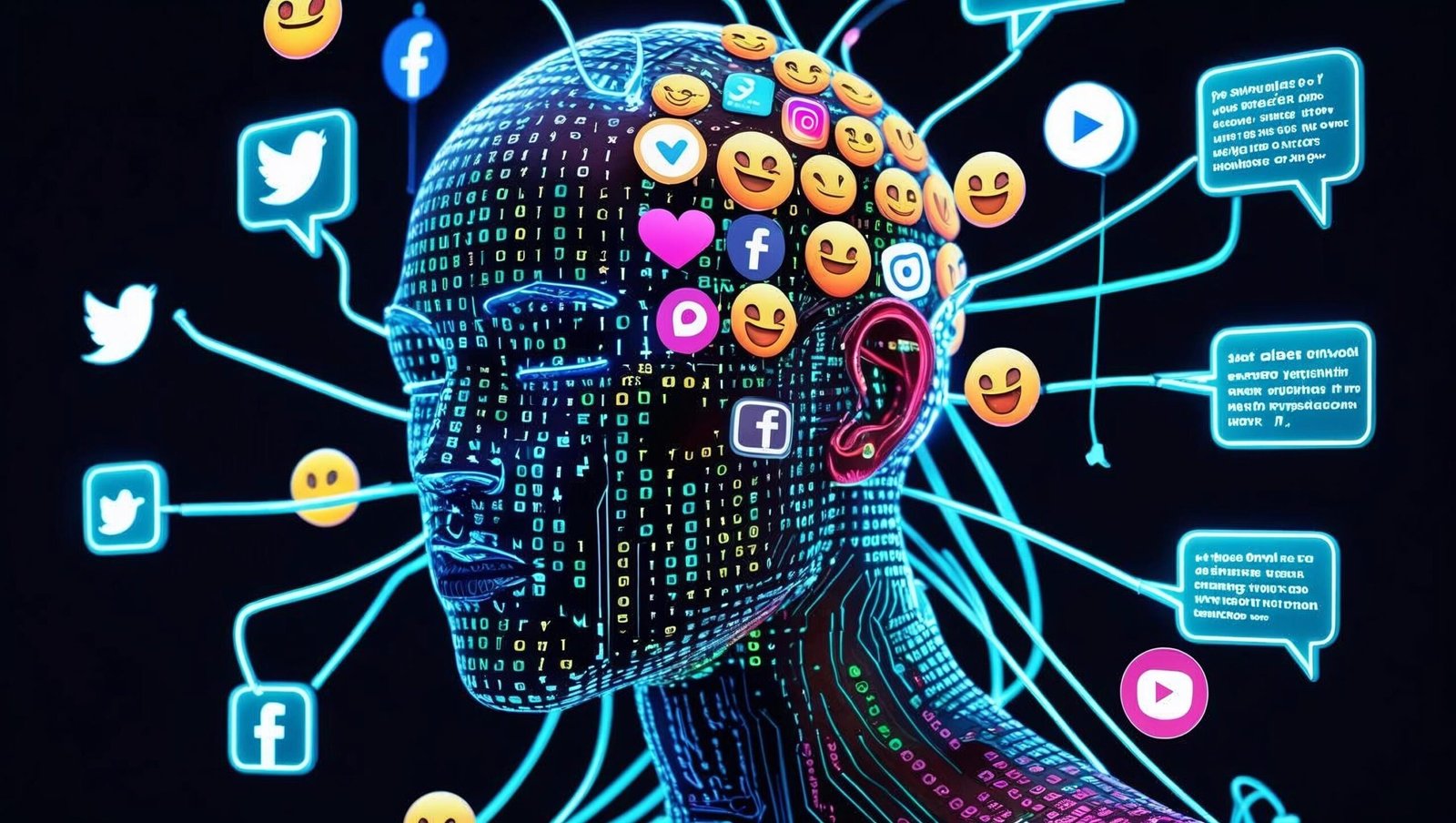Algospeak by Adam Aleksic: 11 Disturbing Realities About Language in the Algorithm Age
In this fast-paced digital age, language isn’t evolving naturally—it’s being redirected. Algospeak by Adam Aleksic dives into how algorithms manipulate what we say, how we say it, and why we say it online. From viral slang to euphemistic censorship, the book is a groundbreaking exploration of the subtle linguistic revolution taking place on social media platforms.
This in-depth blog post is a full-length review of Algospeak by Adam Aleksic, featuring detailed chapter insights, critical analysis, key takeaways, and why it matters today more than ever.

🧠 Who Is Adam Aleksic?
Before unpacking the revelations in Algospeak by Adam Aleksic, it’s crucial to understand the mind behind it. Adam Aleksic, also known as the “Etymology Nerd” on platforms like TikTok and Instagram, has made a name for himself by demystifying linguistic concepts for online audiences. With a background in linguistics from Harvard, Aleksic uses both academic rigor and digital fluency to navigate the strange new world of social media language.
🔍 What Is Algospeak?
Algospeak is a new lexicon—a set of euphemistic, veiled, or coded words used by creators to outsmart social media algorithms. In Algospeak by Adam Aleksic, the author dissects this language shift with clarity and concern. Platforms like TikTok and YouTube now influence our vocabulary more than teachers or writers. That’s not just bizarre—it’s dangerous.
Words like “unalive” instead of “dead,” or “seggs” instead of “sex,” are not just quirky slang. They’re calculated adjustments meant to avoid demonetization, shadow banning, or de-prioritization by algorithmic filters.
📘 Why Algospeak by Adam Aleksic Matters
This review of Algospeak by Adam Aleksic underscores a larger cultural shift. The book is not merely about internet language. It’s about digital survival, online identity, and the erosion of linguistic freedom. Every scroll, swipe, and share subtly alters the linguistic structures we take for granted.
📚 11 Disturbing Realities from Algospeak by Adam Aleksic
1. Algorithms Dictate What Is “Sayable”
The book opens with the powerful argument that algorithms have become unaccountable gatekeepers. In Algospeak by Adam Aleksic, we learn that speech isn’t regulated by law or ethics—but by data-driven monetization logic.
2. Euphemisms Are a Form of Linguistic Compliance
The euphemisms we use today, according to Algospeak by Adam Aleksic, are not about politeness. They’re about platform safety. Words like “unalive,” “SA” (for sexual assault), or “panini” (for pandemic) show how algorithmic control leads to absurdity.
3. Shadow Banning Has Language Consequences
In Algospeak by Adam Aleksic, Aleksic reveals how creators adapt not for audience engagement, but to appease algorithmic invisibility. Language has become a survival tool—not just communication.
4. Digital Slang Creates Language Bubbles
Different internet subcultures use their own algospeak codes, leading to linguistic fragmentation. Algospeak by Adam Aleksic highlights how users no longer speak across demographics, but within niche silos.
5. Nuance and Irony Are Disappearing
Context is often lost in translation—especially when AI can’t distinguish satire from sincerity. Algospeak by Adam Aleksic explains how irony, sarcasm, and layered meaning are becoming liabilities.
6. Algorithm-Driven Speech Is Affecting Thought Patterns
The book dives deep into how constrained vocabulary influences how we think. This concept is central to Algospeak by Adam Aleksic: if we’re unable to express complex or uncomfortable ideas, we may lose the ability to form them.
7. Misinformation Thrives in Algorithmic Ambiguity
When truth-tellers must speak in code to avoid penalties, misinformation gains legitimacy by sounding clearer. Algospeak by Adam Aleksic posits that euphemistic language paradoxically weakens credible speech.
8. Tech Platforms Are Unaccountable Linguistic Authorities
Unlike traditional dictionaries or cultural consensus, platforms change language rules behind closed doors. Algospeak by Adam Aleksic condemns this arbitrary control, calling for transparency and oversight.
9. Cross-Cultural Communication Suffers
Non-English-speaking communities face stricter content suppression due to flawed moderation. Algospeak by Adam Aleksic presents alarming examples of AI misinterpretation in Hindi, Arabic, and Swahili content.
10. Education and Parenting Are Falling Behind
As noted in Algospeak by Adam Aleksic, most parents and teachers can’t keep up with the constantly evolving digital vocabulary. This widens the generation gap and deepens educational challenges.
11. Digital Censorship Could Become Linguistic History
The most chilling idea in Algospeak by Adam Aleksic is that this euphemistic culture might not fade—it could become normalized. Future dictionaries may include algospeak as legitimate vocabulary.
📜 The Historical Precedent of Coded Speech
While the digital environment may seem like new territory, the phenomenon of veiled or altered communication is not novel. Throughout history, people have devised linguistic workarounds to evade authority. From slaves in the American South using spirituals to communicate escape plans, to citizens of authoritarian regimes developing subversive dialects to criticize their governments without being caught—coded language has always served as a survival mechanism.
What’s different now is the agent enforcing the regulation. In centuries past, censorship was enacted by humans: kings, churches, or dictators. Today, it is artificial and algorithmic—executed at incomprehensible speed, with no room for negotiation, error correction, or cultural sensitivity. This scale and impersonality elevate the urgency of addressing this linguistic shift.

🧬 The Neuroscience of Language Compression
Words do more than convey thoughts; they shape cognition itself. Linguists and cognitive scientists have long supported the theory that language influences perception—a concept called linguistic relativity. When people are compelled to swap out emotionally charged or controversial terms for sterilized euphemisms, it dulls the emotional resonance of the ideas themselves.
For instance, replacing “death” with “unalive” distances users from the emotional gravity of mortality. Over time, this may reduce empathetic engagement or dull one’s capacity to address serious issues with appropriate weight. When language is routinely sanitized for online safety, it may inadvertently desensitize the public to complex or painful realities.
🌍 Sociolinguistic Inequality and Moderation Bias
Another underexplored consequence of algorithmically modified language is how it exacerbates digital inequality. AI moderation systems are typically trained on dominant Western linguistic patterns, leaving dialects, minority languages, and non-standard vernaculars vulnerable to false flagging.
Consider African American Vernacular English (AAVE), which contains phrases and grammatical structures that deviate from “standard” English. These are frequently misunderstood by AI tools and subsequently penalized. Such treatment marginalizes entire communities, reinforcing the digital version of linguistic colonialism.
In a globalized internet culture, equitable language treatment must become a foundational priority—not an afterthought.
📱 Platform-Specific Dialectical Evolution
Each social platform now fosters its own idiolect—an individualized form of expression that’s platform-bound. On Reddit, irony and anonymity shape the discourse. Instagram relies on minimal text and heavy visual context. TikTok thrives on catchphrases, sound clips, and hashtag trends. Even within one user’s ecosystem, multiple identities may exist: a formal tone on LinkedIn, casual slang on Twitter, and meme-heavy speech on Discord.
This fragmentation of speech patterns leads to a splintered digital identity. It becomes harder to form a unified sense of self when your language shifts depending on the platform you’re on. The constant recalibration needed to communicate effectively across these micro-environments can result in cognitive dissonance, fatigue, or performative dishonesty.
🔎 The Rise of the Algorithm-Optimized Persona
Language is not just a form of expression anymore—it’s a metric. Online creators are now branding themselves based on word choice, tone, and rhythm. From YouTubers carefully scripting videos to match algorithm-favored attention spans, to podcasters omitting entire topics due to fear of demonetization—authentic speech is often compromised for optimization.
This self-regulation results in an identity that is curated not for human connection but for machine approval. Over time, the distinction between sincere expression and strategic calibration begins to blur, affecting how individuals see themselves and each other.
🧭 Impacts on Democratic Discourse and Freedom of Expression
In a world governed increasingly by data moderation, public discourse is no longer subject solely to democratic principles. The removal of content based on algorithmic flagging—without due process, appeal, or context—raises ethical questions about modern censorship. When linguistic nuance is punished, people start avoiding discussions altogether.
This chilling effect weakens the foundations of democratic societies where freedom of expression is a cornerstone. When users feel they cannot discuss politics, health crises, or social issues without consequence, public forums become less dynamic and more superficial.
Moreover, the presence of such constraints subtly indoctrinates citizens into accepting tech hegemony as a normal state of affairs. The longer this persists, the more difficult it becomes to reverse.
🎓 Pedagogical Implications
Educators are now tasked with teaching students how to communicate in an environment that penalizes direct speech. From middle schools to universities, teachers must account for the ways students code-switch between formal, academic English and platform-optimized language online.
Assignments often reveal a jarring juxtaposition of these styles—where one sentence is scholarly, and the next is laden with euphemistic or overly ambiguous language borrowed from the digital world. This disconnect makes it harder for students to master clear communication, critical reasoning, and persuasive writing.
If education systems do not adapt quickly and responsibly, students may graduate fluent in internet slang but ill-equipped for real-world discourse.

📖 The Literary Parallel: Newspeak and Orwellian Echoes
George Orwell’s 1984 predicted a world in which language was compressed and controlled to prevent subversive thinking. “Newspeak,” the fictional language in Orwell’s dystopia, eliminated complex ideas and abstract thought by reducing vocabulary and simplifying grammar.
While today’s digital euphemisms may seem lighthearted or humorous, they eerily resemble this literary warning. Words with specific emotional and moral weight are substituted with vague, sanitized alternatives. The danger is not just in expression—it’s in erosion of the ability to think critically about injustice, suffering, or ethics.
A society that loses access to powerful vocabulary loses access to powerful resistance.
🛠 Can AI Be Trained to Understand Context Better?
One of the central challenges in current moderation systems is their inability to parse nuance. Algorithms, while powerful, lack human faculties like empathy, historical understanding, and cultural sensitivity. Efforts are underway to develop more context-aware models using large language datasets, but these advancements come with their own risks—particularly around bias replication and data misuse.
In an ideal future, AI moderation would operate with transparency, offer avenues for redress, and factor in context. Until then, creators and users will continue to shape their messages to appease opaque systems, not communities.
📺 The Entertainment Industry and Linguistic Dumbing-Down
Streaming platforms and social media stars are also implicated in this shift. Many scripts, captions, and dialogues are now developed to satisfy algorithmic parameters rather than audience sophistication. A growing body of evidence suggests that writing styles on digital content platforms are becoming more predictable, repetitive, and emotionally shallow.
This simplifies entertainment but degrades its intellectual texture. When writers are punished for creativity or complexity, audiences suffer from reduced narrative depth.
It’s not just creators who lose—it’s the entire cultural ecosystem.
🤖 AI, Deepfakes, and the Next Phase of Language Erosion
With the rise of synthetic speech and generative content tools, the distortion of authentic expression is poised to accelerate. Deepfake technology and AI-generated influencers already operate within linguistic templates designed for algorithmic success.
As synthetic voices become indistinguishable from real ones, and automated captions replace organic descriptions, the role of genuine language is pushed to the periphery. The dominance of machine-coded expression may soon make even human-authored posts seem outdated or inefficient.
This future demands serious consideration: Will real voices be drowned out in a sea of artificially optimized noise?
🔄 The Paradox of Connection in the Digital Age
Ironically, the platforms that promise more connectedness are often those that corrode the richness of how we connect. When expressions are filtered, tone is flattened, and words are calculated for visibility rather than honesty, the result is a hollow form of interaction.
Digital users may have hundreds of thousands of followers and zero people who truly understand their real opinions, fears, or joys. This paradox of connected isolation is exacerbated by linguistic constraints that make genuine expression risky or unrewarding.
The tragedy is not just in language loss—but in the emotional isolation that comes with it.

⚖️ The Moral Responsibility of Tech Companies
As facilitators of global speech, platforms have a moral obligation to handle language with care. While it’s understandable to limit hate speech and misinformation, the current mechanisms are blunt, opaque, and often punitive without cause.
Companies must shift from reactionary censorship to proactive clarity. That includes publishing moderation criteria, offering appeals, and incorporating diverse cultural consultants in AI training. The internet is no longer just a tech space—it is a linguistic, psychological, and societal space. It must be treated with corresponding nuance.
✍️ Final Thoughts
Language is not simply a medium of communication. It is the infrastructure of thought, the skeleton of culture, and the canvas of human experience. The stakes involved in how language evolves—or is coerced into evolving—are enormous.
As our digital lives deepen, it is imperative that we remain vigilant. Words are our first and last defense against manipulation. If we lose control over them, we lose control over ourselves.
✍️ Writing Style and Tone
Aleksic combines academic sharpness with Gen-Z humor. In this review of Algospeak by Adam Aleksic, we admire how the book bridges generations, combining TikTok references with linguistic history. It’s rigorous but accessible—a hallmark of modern nonfiction done right.
💡 Key Themes in Algospeak by Adam Aleksic
-
Digital Survivalism: Language as a tool for staying visible.
-
Algorithmic Authority: How platforms quietly regulate expression.
-
Cultural Echo Chambers: Fragmented language, fragmented truth.
-
Linguistic Erosion: When safety language dilutes real discourse.
🌐 Global Impact of Algospeak
Algospeak by Adam Aleksic isn’t just about American teenagers on TikTok. The phenomena span cultures and countries. As AI moderation expands to other languages, the stakes grow higher. Entire communities risk losing their digital voices due to algorithmic misreadings.

📊 Strengths and Limitations
✅ Strengths:
-
Fresh and original thesis
-
Deep linguistic insights
-
Engaging and humorous tone
-
Timely, relevant examples
❌ Limitations:
-
Overly focused on Western platforms
-
Less attention to neurological impacts
-
Could explore long-term linguistic evolution further
Still, Algospeak by Adam Aleksic remains an essential cultural artifact in the digital age.
🤔 FAQs about Algospeak by Adam Aleksic
Q1: What is the central idea of Algospeak by Adam Aleksic?
A: That algorithms are reshaping how we use language online, creating a coded euphemistic form of speech to avoid censorship and deplatforming.
Q2: Is Algospeak only used on TikTok?
A: No. As shown in Algospeak by Adam Aleksic, the phenomenon spans YouTube, Instagram, Reddit, Twitter, and more.
Q3: Does the book suggest a solution?
A: Yes—digital literacy, user awareness, and regulatory transparency. Algospeak by Adam Aleksic doesn’t call for total resistance but urges mindful navigation.
Q4: Is Algospeak a permanent change?
A: Possibly. Aleksic argues that many algospeak terms may become institutionalized in common speech, especially if algorithms continue to dominate online discourse.
✅ Conclusion
To conclude this review of Algospeak by Adam Aleksic, it’s evident that our communication is undergoing an invisible transformation. Aleksic’s book is more than a linguistic commentary—it’s a wake-up call. If language shapes thought, and algorithms shape language, then what’s shaping us?
Algospeak by Adam Aleksic is a must-read for digital citizens, educators, and communicators in every sphere. It’s witty, sobering, and brilliantly researched. But more than that, it is necessary. In a world where tech shapes tongues, awareness is our last line of defense.
For more deeply researched reviews like this, visit shubhanshuinsights.com—where ideas meet insight.